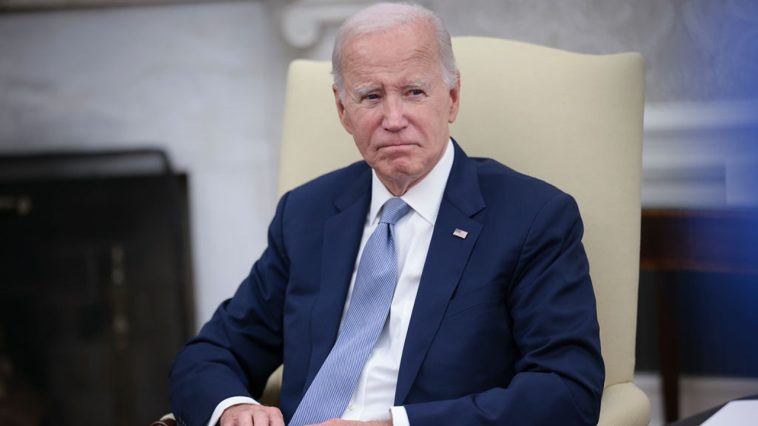LISTEN HERE:
President Biden’s term has seemed to struggle on various fronts, but it appears that the economy remains a prominent stumbling block. Real wages have shown a downwards trend under the current administration, creating a signature increase in poverty. Recent data from the U.S. Census Bureau supports these observations, pointing to a notable increase in poverty levels nationwide.
Their report released recently underlined a concerning development. The percentage of Americans living below the poverty line in 2022 had shot up to 12.4 percent, a significant jump compared to 7.8 percent reported in 2021. This trend is concerning and suggests an environment where too many citizens are struggling to make ends meet.
It’s key to note that the Democrat party was at the helm of both congressional chambers and the presidency during President Biden’s initial two years of leadership. Indeed, the political stage was set for significant legislations, culminating in sizable spending bills. A number of economists, adept at reading the signs, strongly warned that such financial routes would inevitably lead to inflation.
Unfortunately, these inflationary upheavals continue, unabated, to the current day. The impact isn’t merely academic or confined to the financial world; it has seeped into daily life. Millions of American families feel this pinch, adjusting their lifestyles by cutting expenses or resorting to cheaper alternatives. Some have even had to seek financial aid from relatives for basic monthly bills.
Compounding matters is a resurgence in gas prices and consistently high food costs. The resulting impact is starkly reflected in the rising credit card debt across the nation. From the first to the second quarter of 2023 alone, the debt burden jumped a whopping $45 billion, per data reported by Bankrate.com.
A startling fact emerges: consumer credit card debt has reached an unprecedented level of $1.03 trillion. Concurrently, the number of credit card accounts also expanded by 5.48 million. As Bankrate’s Senior Industry Analyst, Ted Rossman, explained, ‘credit card balances have grown 34 percent since hitting the pandemic low of $770 billion in the first quarter of 2021’.
Rossman further highlighted a worrying trend – an increase in the proportion of credit cardholders carrying forward debt month-to-month. The figure now stands at an alarming 47 percent, up from 39% in 2021. The long-standing nature of the debt is particularly unsettling, with six out of ten credit card debt holders having this burden for at least a year – a notable increase of 10 percentage points from two years ago.
A report by LendingClub painted a similar grim picture. It revealed that, with the holiday season around the corner, 60 percent of Americans are living from paycheck to paycheck. The situation is markedly more challenging than the scenario when President Biden first assumed office, against a backdrop of high inflation and gas prices.
Grimly, LendingClub’s findings suggested that 40 percent of consumers believe they are in a worse financial position now than they were a year ago. The report, which was based on data gathered in October, was completed not long before the commencement of the holiday shopping season.
A separate survey conducted by TD Bank echoed these concerns. Credit card debt had, once again, surpassed the trillion-dollar mark. Moreover, nearly all of the respondents, a mindboggling 96 percent, admitted that they risked running over-budget this holiday season.
A report by Ally Bank provided yet another angle. It inferred that half of all consumers were ready to slide deeper into debt for holiday expenses, but only a mere 23 percent anticipated being able to repay it within a couple of months. The spiral of spending and debt is a concerning trend, and it’s impacting how Americans view their financial futures.
The unease was clear in a CNBC Financial Confidence Survey conducted earlier in August- 74 percent of respondents confessed being stressed about their monetary situation. Factors such as inflation, rising interest rates, and dampened savings potential were key contributors to these sentiments.
The CNBC survey painted a worrying picture, underscoring that a staggering 61 percent of Americans find themselves living from paycheck to paycheck. It was a sharp rise from the 58 percent reported earlier in March, illustrating the strained economic situation many citizens are grappling with under current leadership.



